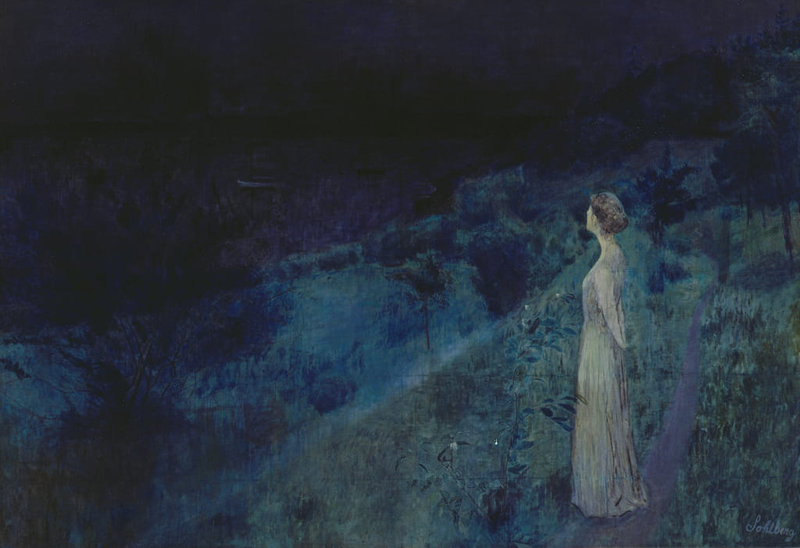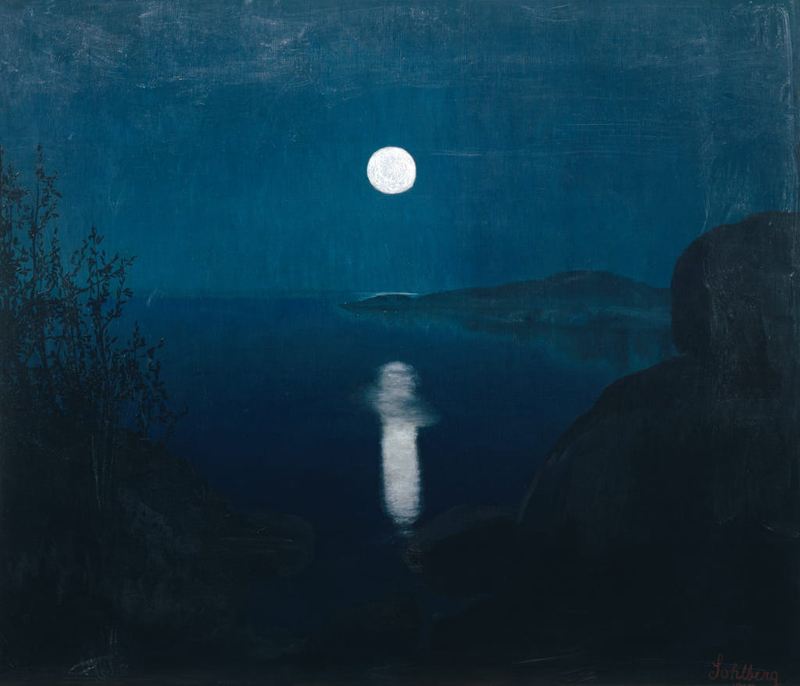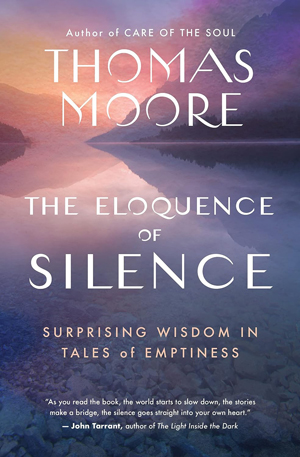
Image: Public Domain
Surprising wisdom in tales of emptiness
Quan Yin
was deep into the practice of attaining wisdom
when she understood that the five skandas [aggregates of clinging]—
physical existence, sensing, perceiving, thinking,
and awareness—are empty.
At that she was relieved of suffering and anxiety.
—The Heart Sutra
THE INDIAN GURU Sri Ramana Maharshi said, “By silence, eloquence is meant. It is the best language.” Continuing in the same vein, American author Thomas Moore, known for his phenomenal bestseller Care of the Soul, has composed his own profound offering and companion piece on the nature of silence, together with the value of empty space and the simple act of letting go.
Through a variety of folktales, literature and age-old spiritual practices, The Eloquence of Silence finds inspiration from the Buddhist Heart Sutra, whose central premise is sunyata, the Indian philosophical concept of observing and even embracing that which is without form.
As Moore writes himself: “We can find so much liberation in our daily lives by including emptiness in everything we do that I consider it the primary doorway to meaning. Your beliefs and values have an empty core. You can’t be attached to them or take them too literally or too seriously. Emptiness allows you to move on and remain flexible. You can be open to the thoughts and values of others and be ready to change and develop.”

Image: Public Domain
There are no eyes, ears, nose, tongue, body, or mind;
no sights, sounds, odours, states, things to touch, or thoughts;
no ignorance and no end of ignorance;
nor is there any ageing or dying
and yet there is no end of ageing and dying;
no suffering, acquiring, ending, or having a path;
no wisdom and no getting anywhere.
Since you can’t get anywhere,
bodhisattvas depend on prajna-paramita [perfection of wisdom],
which is achieving a level of deep understanding.
Their thinking is free of blocks.
Since they are free of blocks,
they are not afraid.
Free of confusing illusions,
they live in a state of nirvana.
—The Heart Sutra
A former Catholic monk and university professor, Thomas Moore (born 8th October 1940) is a highly revered and long-established author and psychotherapist, influenced by the theories of Carl Jung and James Hillman, whereby his work brings together spirituality, mythology, depth psychology and the arts, emphasizing the power and importance of the imagination for spiritual insight and emotional growth.
Indeed, Moore beautifully exemplifies the multifaceted layers of the human psyche through the charming allegorical tales and anecdotes of this exquisite collection, bringing the element of emptiness and its inherent meaning right to the fore, such as the significance of the poet Ryokan’s silent frog jumping into a pond, the disappearing smile of Lewis Carroll’s Cheshire Cat in Alice’s Adventures in Wonderland and the implication of Christ’s vacant tomb as described in the Gospel of Luke.
Moreover, by simplifying our life and denuding it of endless multitasking and mindless clutter, The Eloquence of Silence is ultimately about being at ease with who we truly are right at our very core. Through honouring the quiet and seemingly empty moments of our existence, paradoxically, we are able to experience all that is authentic and meaningful, transcend suffering and embrace the fullness of life.

Image: Public Domain
All buddhas of the past, present, and future,
relying on prajna-paramita,
reach complete fulfilment.
So, understand: praising prajna-paramita
is the wonderful transcendental mantra,
the highest mantra,
the perfectly embracing mantra
that can eliminate suffering.
Prajna-paramita is real, not an illusion.
So chant the prajna-paramita mantra,
the mantra that goes:
not here, absent,
not here at all,
truly absent.
This is wisdom.
Beautiful!
—The Heart Sutra

